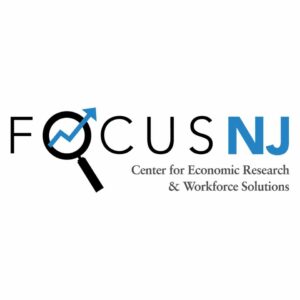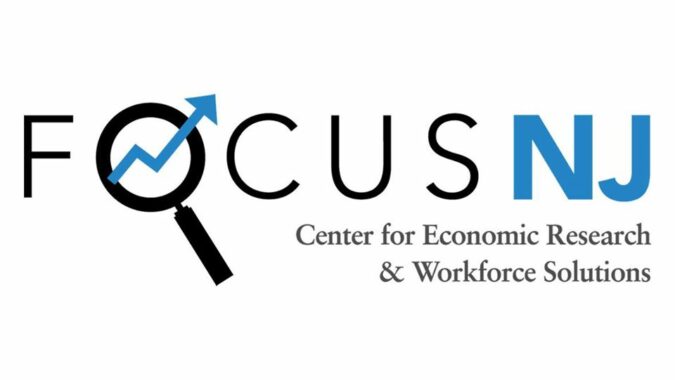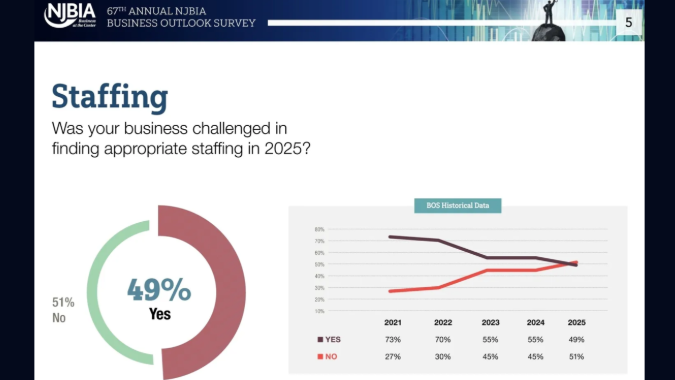Focus NJ today released a series of reports to identify the changing dynamics, opportunities, challenges, emerging skill sets and solutions to fulfill future employment in four different industries in New Jersey.
The Future of Work in NJ: Industry Series Study is the culmination of information provided by 250 New Jersey business executives and industry leaders through focus groups, online surveys, and personal communication.
In the initial release of this study, four industries are o bserved: Construction, Health Services, Information Technology and Manufacturing.
bserved: Construction, Health Services, Information Technology and Manufacturing.
While each industry has its own unique challenges, the overarching solutions for all of them include better collaboration between business, academia and government and a steadier track toward non-traditional education endeavors such as apprenticeships and credentialing.
“For a multitude of reasons, only a minority of our New Jersey businesses are engaged with their local community colleges or four-year institutions,” said Focus NJ Executive Director Nicole Sandelier. “This shortage of collaboration has a direct impact on New Jersey’s future workforce pipeline.
“Additionally, with New Jersey businesses looking to the state’s postsecondary institutions to fill their workforce needs, it is imperative that those institutions have a better understanding of the skills desired by employers to ensure a properly educated workforce pipeline. This will provide employees with valuable, employable skills and supply employers with relevant talent in all industries.”
Key findings among each industry report includes:
There is great opportunity to improve overall productivity and efficiencies with new technologies and materials.
The industry has been challenged by stagnated labor productivity, recruitment of qualified workforce, inadequate collaboration between suppliers and contractors and costs of materials.
Some jobs are transitioning from low- to middle-skilled jobs to higher-skilled, professional jobs with the advent of newer technologies.
The reincorporation of trade skill sets into K-12 education, increased capacity at the state’s vocational-technical schools, the creation of more apprenticeships programs and the promotion of trade careers are some of the recommendations to improve the Future of Work in construction.
Technological advancements, including artificial intelligence, will continue to allow for more accurate diagnoses and a better integration of delivery methods for healthcare.
Industry opportunities can be found in increased access to telehealth, advancements in immunotherapies and point-of-care diagnostics, higher demand for next-generation sequencing and the growth of the senior citizen population.
Some industry challenges include finding qualified a workforce today, employee burnout, the uncertain outlook of the Affordable Care Act, and the increase in high-deductible plans.
Recommendations to improve the Future of Work in health services include changing the misconception that a four-year degree is needed to have a career in the industry, creating more CNA and registered nursing schools and improving communication between industry, government and institutions to better articulate industry needs and training requirements.
There will continue to be an increased focus on service delivery, data processing and other IT services with the continued advancement of a digital economy.
Cybersecurity has transitioned from a reactive endeavor to a proactive approach that is now a mainstay of organizational strategic plans.
Emerging technologies have the potential to generate significant financial gains for the industry.
There are multiple industry challenges, including the search for a qualified and diversified workforce, industry regulation and the high cost of industry products versus the budget constraints of potential clients.
There is a need to create and promote internships and apprenticeships in this field. Other recommendations include the promotion of certificates and credentialing for preparing workers in the IT field.
The industry is seeing greater integration between humans and robotics or machines on factory floors, described by some as the Fourth Industrial Revolution.
This integration is allowing for increased productivity within decreased timelines.
Companies are using predictive analysis to minimize machine malfunctions that compromise product outlook, sales and delivery.
Industry challenges include an aging workforce with a lack of young, skilled labor, the costly nature of New Jersey’s business climate, shrinking margins due to increased pricing competition throughout the world and tariffs.
Some recommendations to improve the Future of Work in manufacturing include the reincorporation of trade skill sets in K-12 education, increased capacity in vocational-technical schools, more promotion of trades as a successful career pathways, and more apprenticeship programs to drive skilled labor to in-need industries.
To view the complete Future of Work in NJ: Industry Series Study, click here. More industry studies under the Future of Work in NJ banner are expected later this year.
Focus NJ – the Center for Economic Research and Workforce Solutions – is a nonpartisan, nonprofit research foundation launched by the New Jersey Business & Industry Association in February, 2020. It has and will continue to administer deep analysis of public policies, industry trends and economic indicators that impact New Jersey’s overall affordability, workforce and competitiveness.




